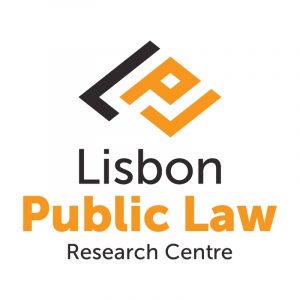Litigation Techniques towards Implementation of EU Acquis on RoL and Fundamental Rights
organised by LPL – Lisbon Public Law Research Centre in Lisbon + online


Co-funded by the European Union
Overview
In recent years, the jurisprudence of the European courts concerning judges and the systemic guarantees of judicial independence has increased.
This workshop aims at discussing the role of national apex courts in ensuring the fundamental rights protection standards required by the EU acquis as an essential element of the Rule of Law. Different litigation and judicial interaction techniques will be explored on the implementation of fundamental rights enshrined in the EU Charter of Fundamental Rights, the European Convention of Human Rights alongside national constitutional rights, as applied by various Constitutional Courts and Supreme Civil and Administrative Courts throughout the Union. Our objective is not only to analyze current practices but also to chart a course towards enhanced judicial protection, realization, and enforcement of fundamental rights across the European Union.
Programme
Are National Higher Courts Securing Fundamental Rights?
Litigation Techniques towards the Implementation of the EU Acquis on Rule of Law and Fundamental Rights
Thursday 23 May
09h00 Welcome address
09h10 Presentation of TRIIAL 2 Toolkit on Rule of Law and Judicial Dialogue
09h25 Panel 1 – The bottom-up perspective (I): the view from Constitutional Courts
11h25 Coffee break
11h40 Working groups
13h00 Lunch
14h00 Presentation of TRIIAL 2 Thematic Booklet
14h15 Panel 2 – The bottom-up perspective (II): the view from other national higher courts
16h15 End of day 1
Friday 24 May
09h30 Panel 3 – The top-down perspective: the view from the Court of Justice of the EU and from the European Court of Human Rights
11h30 Coffee break
11h45 Working groups
13h00 End of day 2
Framework: This workshop is offered within the European Commission’s funded project TRIIAL 2 – Trust, Independence, Impartiality and Accountability of Legal professionals under the EU Charter (project no. 101089737, JUST-JTRA-EJTR-AG-2020). The TRIIAL 2 Project provides training activities and tools for judges, attorneys, and prosecutors on the European rule of law, mutual trust, judicial independence, impartiality and accountability (see the dedicated website here).
Target group
Judges, public prosecutors and legal practitioners from European Union (EU) countries. The training will be in English and opened to those with both basic and experienced knowledge of EU law and ECtHR jurisprudence.
The Workshop will host 40 participants, of which 15 will be in person and 25 online. Participation is free of charge.
For the 15 in-person participants, the travel, accommodation, and meals at the venue are covered by the organizer.
Participants will be provided with certificates of participation.
Application
The deadline for the submission of applications is 28th of April 2024.
Submit your application, including the documents mentioned below, to researchoffice@lisbonpubliclaw.pt
You should mention in the title of your email whether you want to participate in-person or online.
The following documents shall be attached to the application:
- CV in English (including a section on proof of knowledge of English)
- A short motivation letter (max 2 pages) outlining the candidate’s specific reasons for applying to a workshop (please describe how your professional activity correlates to the workshop’s field of interest and how you could both benefit from and contribute to the Workshop in this field)
For questions regarding the Workshop and the project, contact: researchoffice@lisbonpubliclaw.pt
Selection Procedure
The assessment of applications will be based on the following criteria:
- Gender and age balanced;
- Geographically balanced;
- Balance in the judicial hierarchy: both higher and lower instance courts shall be represented among selected participants;
- Trainers will have priority in selection (please refer to relevant training responsibilities in your CV);
- Knowledge of and experience with fundamental rights and rule of law issues;
- Good knowledge of English;
- Single participation within the same Training Project (TRIIAL 2): in principle, no participant can take part in more than one Workshop among those offered within the TRIIAL 2 Project.
LPL will select 40 legal practitioners. After the exhaustion of the 15 in person places, the remaining ones will be allocated to online participation.
The results of the selection will be communicated by 30th of April 2024.
Outcome of the Workshop
- You will receive a certificate of participation.
- You will be able to understand and explain the main legal issues relating to the European rule of law (the training’s “core”).
You will be also able:
- to understand and explain the main legal issues relating to the European rule of law;
- to acquire the knowledge and the ability to assess the legal pathways that grant access to national higher courts when invoking fundamental rights and their procedural steps;
- to establish whether the solution of the pending case requires the involvement of the Court of Justice through the reference for preliminary ruling;
- to identify the role of the ECHR and the case law of the Strasbourg Court in national rulings;
- to determine whether the Charter of Fundamental Rights of the EU is applicable in a certain case or not;
- to understand how to implement the relevant case law of the Court of Justice in your case;
- to find cases decided by the Court of Justice or national courts which can help you solving the pending case or supporting your legal arguments concerning some of the main fundamental rights, paving the way for a better judicial RoL protection and enforcement of fundamental rights within the European Union.
- to become part of a network of legal practitioners, activists and scholars dealing with similar issues that could provide support for future questions.
